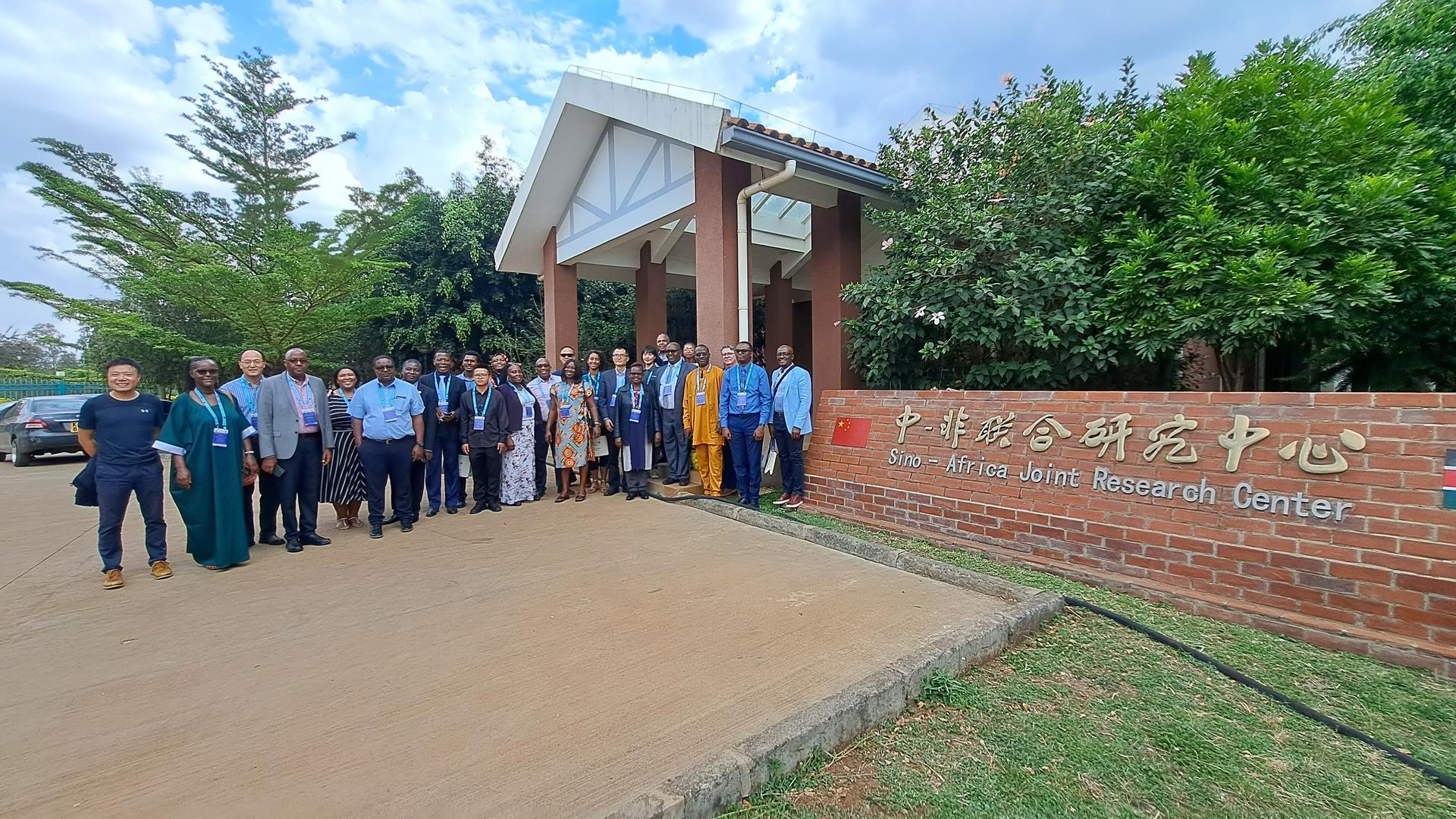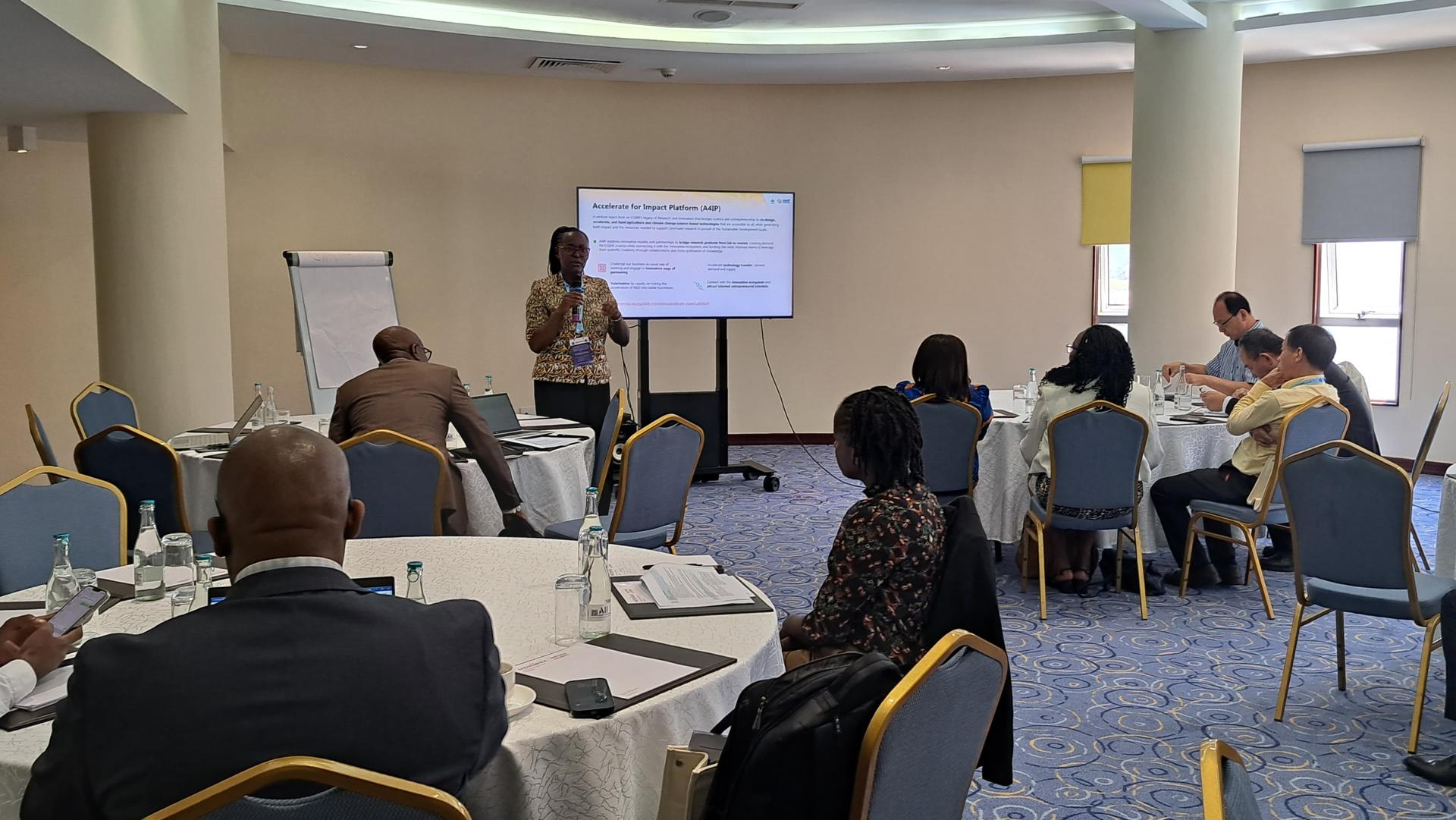Blog What We Can Learn from the South-South China-Africa Science and Technology Cooperation and Innovation for Social and Economic Benefits Symposium

In a world where global challenges such as climate change, food security, and environmental degradation demand collective efforts, the recent symposium held in Nairobi, Kenya, from September 25–27, 2023, shed light on the power of collaboration and innovation in transforming Africa’s economy for the betterment of society and the environment.
This can be achieved through collaboration on upscaling innovation and technologies that can drive economic growth by creating new industries and increasing agricultural productivity, reducing reliance on single sectors. This diversification fosters global competitiveness, attracts foreign investment, and supports entrepreneurship and small businesses. Sustainable resource management and solutions to global challenges can enhance long-term economic resilience, allowing African nations to secure a prosperous future through collaboration and innovation.
The symposium brought together a diverse group of experts, including scientists and researchers from the African Union Development Agency-New Partnership for Africa's Development (AUDA-NEPAD), the Mission of the People's Republic of China to the African Union, the Consortium of the Chinese Academy of Sciences (CAS), African Agricultural Technology Foundation (AATF), CGIAR Accelerate for Impact Platform (A4IP), the Kenya National Innovation Agency (KeNIA), the Jomo Kenyatta University of Agriculture and Technology (JKUAT), the Chinese Academy of Agricultural Sciences (CAAS), and the China-Africa Innovation Cooperation Center (CAICC).
At its core, the symposium aimed to enhance science and technology cooperation and innovation for social and economic benefits between African Union Member States and China through ongoing flagship programs. The event was organized around three central themes:
- Agricultural and Food Systems Transformation, which recognized the urgent need to innovate and improve agricultural practices to ensure food security for a growing global population. Discussions emphasized the importance of scaling innovation through strategic partnerships and technology transfer, thereby addressing the challenges and solutions required for widespread adoption. Prof. Ereck Chakauya delved into the crucial topic of re-evaluating the commercialization of publicly funded R&D in Africa. Drawing lessons from the SANBio Network of Biosciences, Prof. Chakauya emphasized the necessity of consolidating a country's innovations under a unified platform, overseen at the highest levels of decision-making. This approach, he argued, would expedite the decision-making process for upscaling innovations. Prof. Chakauya also pointed out the significance of ensuring that innovations benefit researchers as well as the institutions hosting these researchers. “Innovation is when you use knowledge to make money, therefore we need to use knowledge to make money,” he added.
- Biodiversity Conservation and Utilization which is the backbone of healthy ecosystems and a crucial resource for sustaining life on Earth. The symposium explored ways to balance the protection and sustainable utilization of biodiversity through innovative research and monitoring methods.
- Water Resources and Environmental Protection: Water is a finite and essential resource that requires careful management. The symposium discussed techniques and capabilities for managing water resources effectively, promoting sustainable use, and protecting water environments. One of the symposium's highlights was the keynote address by Prof. Jelel Ezzine, who underscored the critical importance of addressing climate change. He highlighted the history of climate treaties and emphasized that Africa must not only be heard but also actively be supported by the Global North to mitigate the impacts of climate change. He concluded by underlining a critical point, “The only path out of this man-made chaos is to prioritize Degrowth in the Global North and sustainable Growth in the Global South, all within the limits set by nature.” This showcases the necessity for a global shift towards sustainable and balanced economic development emphasizing the need for developed nations to focus on reducing their ecological footprint (degrowth) while supporting sustainable growth in less developed regions to enable more equitable and environmentally sustainable future.

The symposium featured insightful discussions, including the A4IP/CGIAR presentation. This showcased the pivotal role of scaling innovation through strategic partnerships and technology transfer, particularly in the realm of agriculture. A key takeaway from the presentation was the identification of challenges that often hinder the successful and widespread adoption of innovative agricultural practices and technologies. These hurdles encompassed various aspects, including resource constraints, project cycles, mindset shifts, human capacity, technology readiness levels, business models, infrastructure, market competition, monitoring and evaluation, and environmental impact. Resource constraints, whether in terms of finances or skilled personnel, were highlighted as a substantial obstacle in the scaling of innovations. The proposed solutions included diversifying funding sources, investing in training and capacity-building, collaborating with like-minded organizations, and crafting compelling business cases to attract support. The importance of fostering a change in mindset was also emphasized, with strategies such as stakeholder analysis, comprehensive training, and consistent communication of the benefits of innovation.
Overcoming market competition was seen as achievable through emphasizing the unique features of innovations and promoting collaborations. Sustainability and scalability were identified as essential components of the scaling process, necessitating long-term planning, scalable designs, and continuous adaptation. Capacity building for key personnel called for investment in training, fostering a culture of learning, and offering competitive incentives to retain talent. Effective monitoring and evaluation were deemed crucial, relying on clear Key Performance Indicators (KPIs), continuous assessment, and transparent communication of findings. Additionally, addressing environmental impact through assessments and sustainable practices, including eco-friendly alternatives, was considered an essential element in the scaling journey.
The importance of addressing challenges through innovative solutions to pave way for successful scaling of agricultural innovations ties in well with A4IP's strategy of valorizing dormant research technologies and fostering collaborative engagement to bring potential market-ready innovations from the lab to the market.
3 key takeaways:
- Adequate long-term funding is essential to ensuring the successful adoption and scaling of agricultural innovations.
- Collaboration enables broader market access, shared resources, and risk mitigation, promoting more efficient and impactful agricultural transformation.
- Innovations should prioritize end users' needs and market demands to enhance food security and sustainability in agriculture.
The symposium showcased the immense potential of collaboration, innovation, and shared knowledge in addressing pressing global challenges. As we move forward, it is essential to continue fostering partnerships and implementing innovative solutions that can transform agricultural systems, protect the environment, and improve the well-being of communities in Africa and beyond. The symposium serves as a testament to what can be achieved when nations and organizations work together for the greater good.
